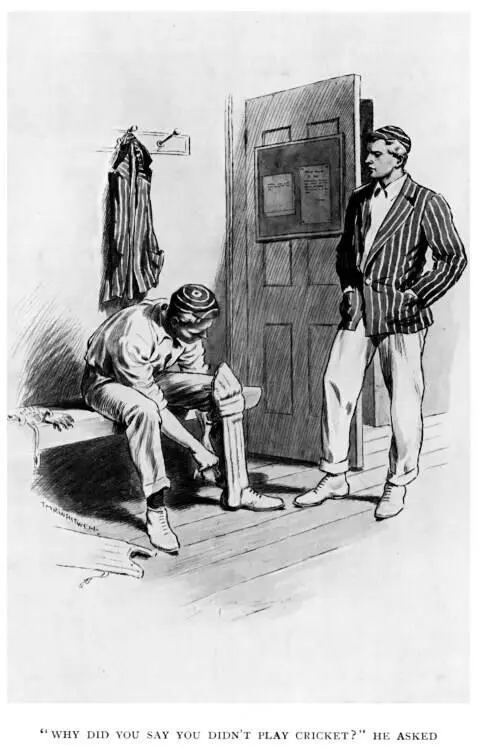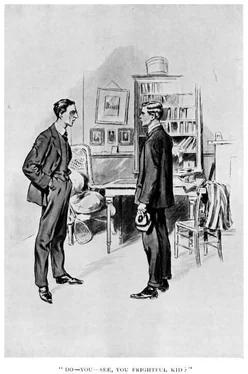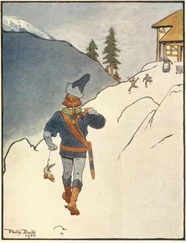Pelham Wodehouse - Mike
Здесь есть возможность читать онлайн «Pelham Wodehouse - Mike» весь текст электронной книги совершенно бесплатно (целиком полную версию без сокращений). В некоторых случаях можно слушать аудио, скачать через торрент в формате fb2 и присутствует краткое содержание. Жанр: Классическая проза, Юмористическая проза, на английском языке. Описание произведения, (предисловие) а так же отзывы посетителей доступны на портале библиотеки ЛибКат.
- Название:Mike
- Автор:
- Жанр:
- Год:неизвестен
- ISBN:нет данных
- Рейтинг книги:4 / 5. Голосов: 1
-
Избранное:Добавить в избранное
- Отзывы:
-
Ваша оценка:
- 80
- 1
- 2
- 3
- 4
- 5
Mike: краткое содержание, описание и аннотация
Предлагаем к чтению аннотацию, описание, краткое содержание или предисловие (зависит от того, что написал сам автор книги «Mike»). Если вы не нашли необходимую информацию о книге — напишите в комментариях, мы постараемся отыскать её.
Mike — читать онлайн бесплатно полную книгу (весь текст) целиком
Ниже представлен текст книги, разбитый по страницам. Система сохранения места последней прочитанной страницы, позволяет с удобством читать онлайн бесплатно книгу «Mike», без необходимости каждый раз заново искать на чём Вы остановились. Поставьте закладку, и сможете в любой момент перейти на страницу, на которой закончили чтение.
Интервал:
Закладка:
There are moments when a sort of panic seizes a bowler. This happened now with Mr. Downing. He suddenly abandoned science and ran amok. His run lost its stateliness and increased its vigour. He charged up to the wicket as a wounded buffalo sometimes charges a gun. His whole idea now was to bowl fast.
When a slow bowler starts to bowl fast, it is usually as well to be batting, if you can manage it.
By the time the over was finished, Mike’s score had been increased by sixteen, and the total of his side, in addition, by three wides.
And a shrill small voice, from the neighbourhood of the pavilion, uttered with painful distinctness the words, “Take him off!”
That was how the most sensational day’s cricket began that Sedleigh had known.
A description of the details of the morning’s play would be monotonous. It is enough to say that they ran on much the same lines as the third and fourth overs of the match. Mr. Downing bowled one more over, off which Mike helped himself to sixteen runs, and then retired moodily to cover-point, where, in Adair’s fifth over, he missed Barnes—the first occasion since the game began on which that mild batsman had attempted to score more than a single. Scared by this escape, Outwood’s captain shrank back into his shell, sat on the splice like a limpet, and, offering no more chances, was not out at lunch time with a score of eleven.
Mike had then made a hundred and three.
As Mike was taking off his pads in the pavilion, Adair came up.
“Why did you say you didn’t play cricket?” he asked abruptly.

When one has been bowling the whole morning, and bowling well, without the slightest success, one is inclined to be abrupt.
Mike finished unfastening an obstinate strap. Then he looked up.
“I didn’t say anything of the kind. I said I wasn’t going to play here. There’s a difference. As a matter of fact, I was in the Wrykyn team before I came here. Three years.”
Adair was silent for a moment.
“Will you play for us against the Old Sedleighans to-morrow?” he said at length.
Mike tossed his pads into his bag and got up.
“No, thanks.”
There was a silence.
“Above it, I suppose?”
“Not a bit. Not up to it. I shall want a lot of coaching at that end net of yours before I’m fit to play for Sedleigh.”
There was another pause.
“Then you won’t play?” asked Adair.
“I’m not keeping you, am I?” said Mike, politely.
It was remarkable what a number of members of Outwood’s house appeared to cherish a personal grudge against Mr. Downing. It had been that master’s somewhat injudicious practice for many years to treat his own house as a sort of Chosen People. Of all masters, the most unpopular is he who by the silent tribunal of a school is convicted of favouritism. And the dislike deepens if it is a house which he favours and not merely individuals. On occasions when boys in his own house and boys from other houses were accomplices and partners in wrong-doing, Mr. Downing distributed his thunderbolts unequally, and the school noticed it. The result was that not only he himself, but also—which was rather unfair—his house, too, had acquired a good deal of unpopularity.
The general consensus of opinion in Outwood’s during the luncheon interval was that, having got Downing’s up a tree, they would be fools not to make the most of the situation.
Barnes’s remark that he supposed, unless anything happened and wickets began to fall a bit faster, they had better think of declaring somewhere about half-past three or four, was met with a storm of opposition.
“Declare!” said Robinson. “Great Scott, what on earth are you talking about?”
“Declare!” Stone’s voice was almost a wail of indignation. “I never saw such a chump.”
“They’ll be rather sick if we don’t, won’t they?” suggested Barnes.
“Sick! I should think they would,” said Stone. “That’s just the gay idea. Can’t you see that by a miracle we’ve got a chance of getting a jolly good bit of our own back against those Downing’s ticks? What we’ve got to do is to jolly well keep them in the field all day if we can, and be jolly glad it’s so beastly hot. If they lose about a dozen pounds each through sweating about in the sun after Jackson’s drives, perhaps they’ll stick on less side about things in general in future. Besides, I want an innings against that bilge of old Downing’s, if I can get it.”
“So do I,” said Robinson.
“If you declare, I swear I won’t field. Nor will Robinson.”
“Rather not.”
“Well, I won’t then,” said Barnes unhappily. “Only you know they’re rather sick already.”
“Don’t you worry about that,” said Stone with a wide grin. “They’ll be a lot sicker before we’ve finished.”
And so it came about that that particular Mid-term Service-day match made history. Big scores had often been put up on Mid-term Service day. Games had frequently been one-sided. But it had never happened before in the annals of the school that one side, going in first early in the morning, had neither completed its innings nor declared it closed when stumps were drawn at 6.30. In no previous Sedleigh match, after a full day’s play, had the pathetic words “Did not bat” been written against the whole of one of the contending teams.
These are the things which mark epochs.
Play was resumed at 2.15. For a quarter of an hour Mike was comparatively quiet. Adair, fortified by food and rest, was bowling really well, and his first half-dozen overs had to be watched carefully. But the wicket was too good to give him a chance, and Mike, playing himself in again, proceeded to get to business once more. Bowlers came and went. Adair pounded away at one end with brief intervals between the attacks. Mr. Downing took a couple more overs, in one of which a horse, passing in the road, nearly had its useful life cut suddenly short. Change-bowlers of various actions and paces, each weirder and more futile than the last, tried their luck. But still the first-wicket stand continued.
The bowling of a house team is all head and no body. The first pair probably have some idea of length and break. The first-change pair are poor. And the rest, the small change, are simply the sort of things one sees in dreams after a heavy supper, or when one is out without one’s gun.
Time, mercifully, generally breaks up a big stand at cricket before the field has suffered too much, and that is what happened now. At four o’clock, when the score stood at two hundred and twenty for no wicket, Barnes, greatly daring, smote lustily at a rather wide half-volley and was caught at short-slip for thirty-three. He retired blushfully to the pavilion, amidst applause, and Stone came out.
As Mike had then made a hundred and eighty-seven, it was assumed by the field, that directly he had topped his second century, the closure would be applied and their ordeal finished. There was almost a sigh of relief when frantic cheering from the crowd told that the feat had been accomplished. The fieldsmen clapped in quite an indulgent sort of way, as who should say, “Capital, capital. And now let’s start our innings.” Some even began to edge towards the pavilion. But the next ball was bowled, and the next over, and the next after that, and still Barnes made no sign. (The conscience-stricken captain of Outwood’s was, as a matter of fact, being practically held down by Robinson and other ruffians by force.)
A grey dismay settled on the field.
The bowling had now become almost unbelievably bad. Lobs were being tried, and Stone, nearly weeping with pure joy, was playing an innings of the How-to-brighten-cricket type. He had an unorthodox style, but an excellent eye, and the road at this period of the game became absolutely unsafe for pedestrians and traffic.
Читать дальшеИнтервал:
Закладка:
Похожие книги на «Mike»
Представляем Вашему вниманию похожие книги на «Mike» списком для выбора. Мы отобрали схожую по названию и смыслу литературу в надежде предоставить читателям больше вариантов отыскать новые, интересные, ещё непрочитанные произведения.
Обсуждение, отзывы о книге «Mike» и просто собственные мнения читателей. Оставьте ваши комментарии, напишите, что Вы думаете о произведении, его смысле или главных героях. Укажите что конкретно понравилось, а что нет, и почему Вы так считаете.


